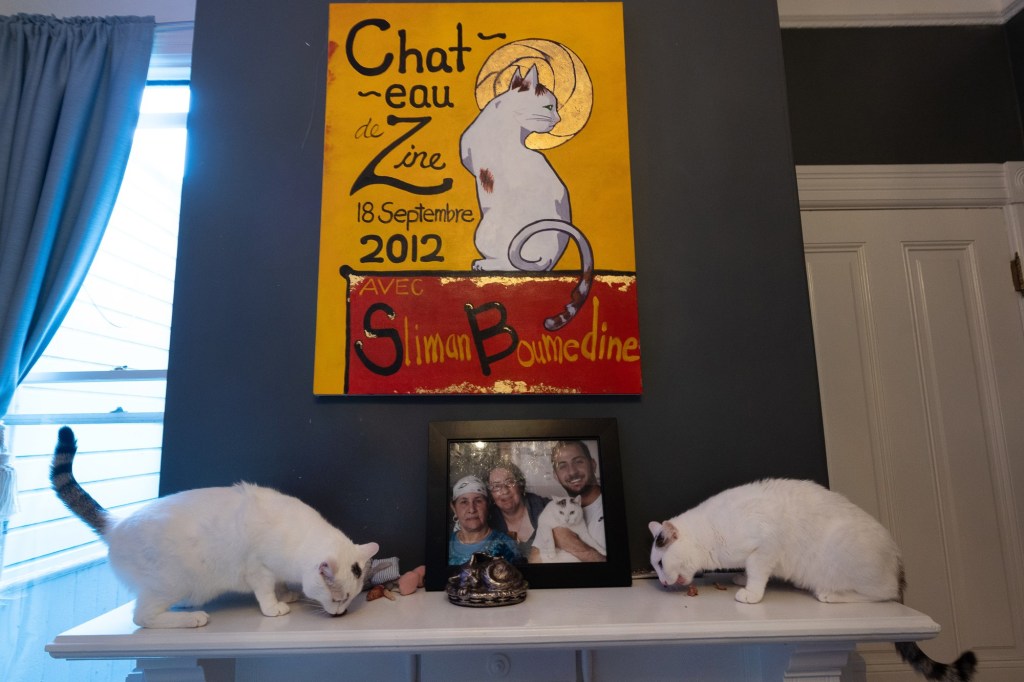Everyone has that one pet in life who they fall in love with at first sight — or first scratch.
For San Francisco resident Wyatt Boumedine, that was Zine, his white cat with a raccoon-like tail who would constantly growl, claw — and probably curse, if he could speak — at his owner. But Boumedine adored him. When Zine died from cancer in 2016, he was devastated.
But just before he passed, Boumedine discovered Texas-based ViaGen Pets, the only U.S-based firm to offer commercial cloning of dogs and cats. For $25,000 — the company’s price for cat cloning in 2016 — Boumedine could have a copy of his beloved pet.
The French native knew his bond with Zine couldn’t be replicated with another cat — even a genetically identical one. But, if there was some way he could keep a part of Zine alive with him, then perhaps cloning was worth a try.
Fast-forward one year later: Boumedine was able to obtain not one, but two clones of Zine through ViaGen. He appropriately named them Zine Jr. and Zinou — the latter combining Zine’s name with a French word to express affection.
“Every time I see them, I’m very happy,” he said. “I absolutely do not regret doing that.”
Boumedine joins a rising number of owners across the United States who are taking advantage of a 21st-century scientific marvel: pet cloning, or the process of creating an exact genetic replica of another organism. But there is a backlash, too, from those who think the practice is morally wrong.
Animal cloning was once considered to be a science-fiction fantasy, but then came Dolly the sheep in 1996 — the first mammal to be cloned from an adult cell — and suddenly the concept became an obtainable and profitable reality. After cloning Dolly, scientists began to expand their palette to include mice, cows and horses. But it was the cats and dogs, which are the most popular pets in the United Staes, that caught the public’s attention.
High-profile celebrities like Barbra Streisand and Paris Hilton…
Read the full article here







